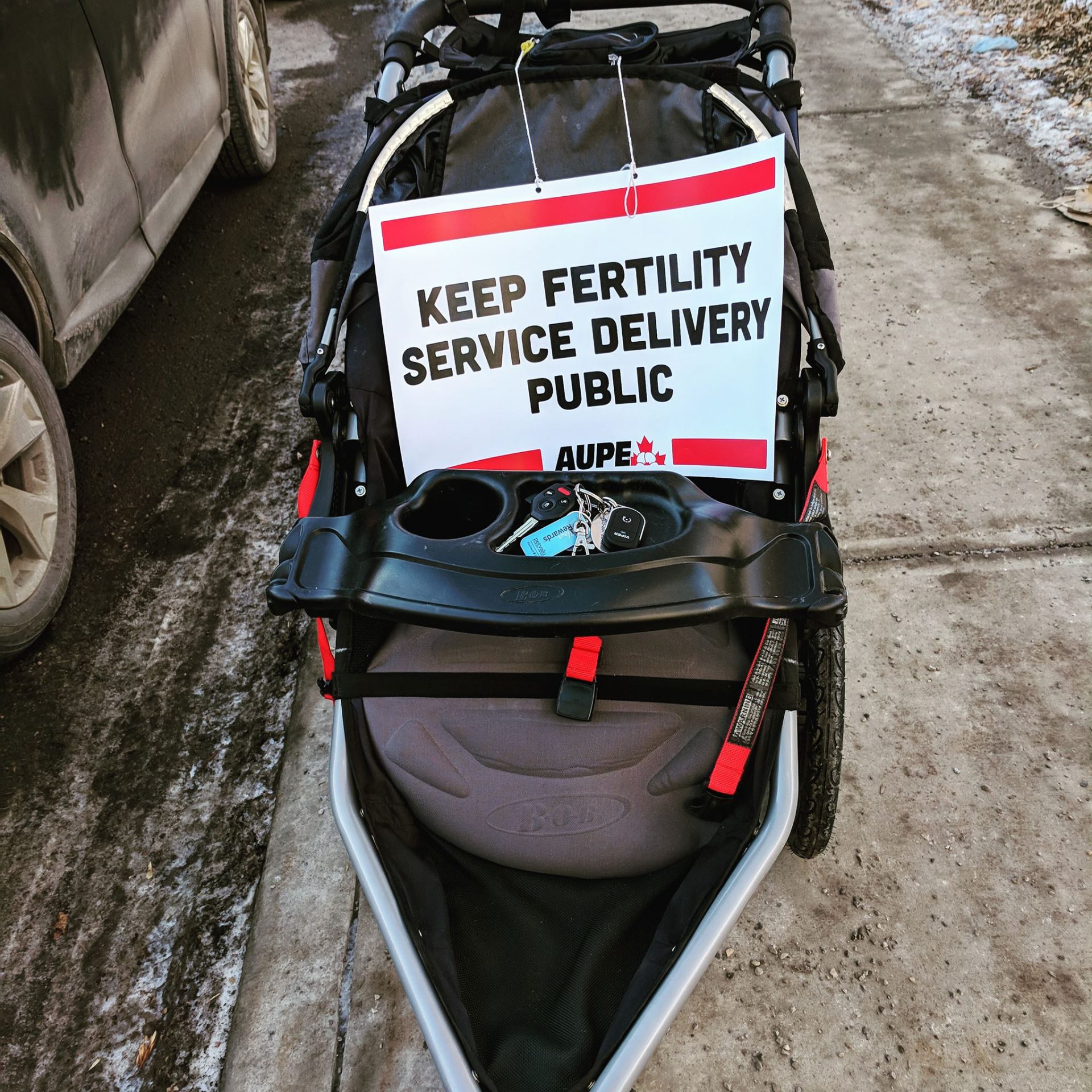The path to parenthood has changed for Kristine Kevinsen and her partner after changes to the fertility program at the Lois Hole Hospital for Women in Edmonton. The clinic plans to stop offering uninsured services such as intrauterine insemination and in vitro fertilization.
The Grande Prairie couple have been dealing with their fertility issues since 2015. It started with a referral to the clinic in Edmonton and then a round of testing before their first appointment in July of 2016. When they arrived they were disappointed to learn that they would need to re-do many of the tests because the “lab wanted to use their results”, according to Kevinsen. She says all of the testing, re-testing and travelling took a toll.
“Basically it took over. All we could think about was getting the next test done so we could get the next appointment and get more answers.”
Kevinsen estimates there has been about 15 trips between Grande Prairie and Edmonton in the last year and a half, which has meant a lot of time off work. While she has felt the support of her employer, it’s also meant the use of vacation days and personal time. During one of her extended stays in Edmonton they arranged for her to work remotely around her scheduled medical appointments, but she says that meant some difficult conversations at the office.
“You have to be really honest and you have to give them a lot of your personal information on something that’s really, really private. We’ve kept this really private for such a long time. To have those conversations, it was pretty difficult.”
After a few appointments at Lois Hole, Kevinsen and her partner decided to switch to the Pacific Centre for Reproductive Medicine, a private clinic that operates out of Edmonton as well. While the changes to services at Lois Hole don’t directly impact her options, she expects them to increase the wait times at her current clinic and time isn’t on their side. Kevinsen says she was hoping to get in one more cycle of treatments before she hits 35 years old because the likelihood of a successful pregnancy drops from about 45 per cent down to closer to 20 per cent.
Kevinsen and her partner took that as their sign that they may need to re-think their plans and are now considering adoption. She says she plans to continue to work with United Infertility Edmonton to fight for the “public right to reproductive medicine.”
“It’s just not only the reversal of the decision, it’s also access to treatment and the existing barriers that we already have in place: cost, geography, the amount of treatment centres. Now we’re down to three in Alberta: one in Edmonton and two in Calgary.”
Though she and her partner have decided “they’d rather be parents than pregnant”, Kevinsen still feels like it was important to attend a recent rally held in Edmonton, which she called a “really emotional” and “therapeutic” experience. Kevinsen also brought with her a poignant visual tool: an empty stroller. She said it represented the absence of a child in their life.
“Standing with a group of people who know the pain and know the struggle and just feel it as much as I do was very comforting. I found everyone just amazing. [We were] holding hands, hugging and crying together. The speeches were amazing.”
Health Minister Sarah Hoffman says in a statement that prior to the rally she met with some families and continues to leave the door open to discussions with more Albertans. She also re-affirmed the facility will continue to function, just without certain uninsured services.
“Alberta families are always foremost in my mind. I know the departure of two physicians from the Regional Fertility & Women’s Endocrine Clinic at the Lois Hole Hospital for Women to take up private practice has led to uncertainty and stress for many families. Alberta Health Services will continue to provide all the same publicly insured services it has done through the Lois Hole clinic, and will assist patients throughout the transition if they wish to move to the private clinic.”
The changes are expected to come in to effect in February of 2018.


